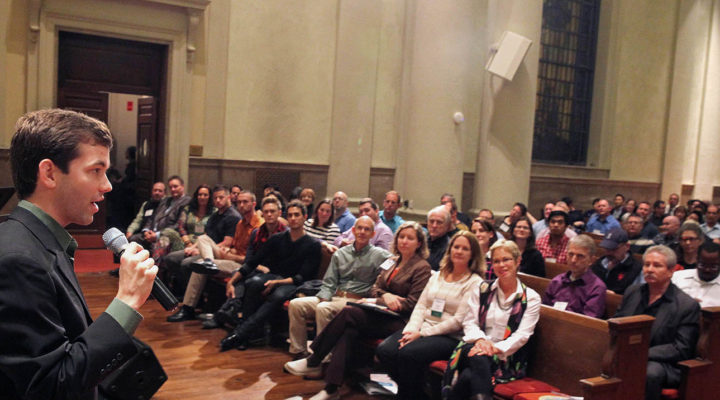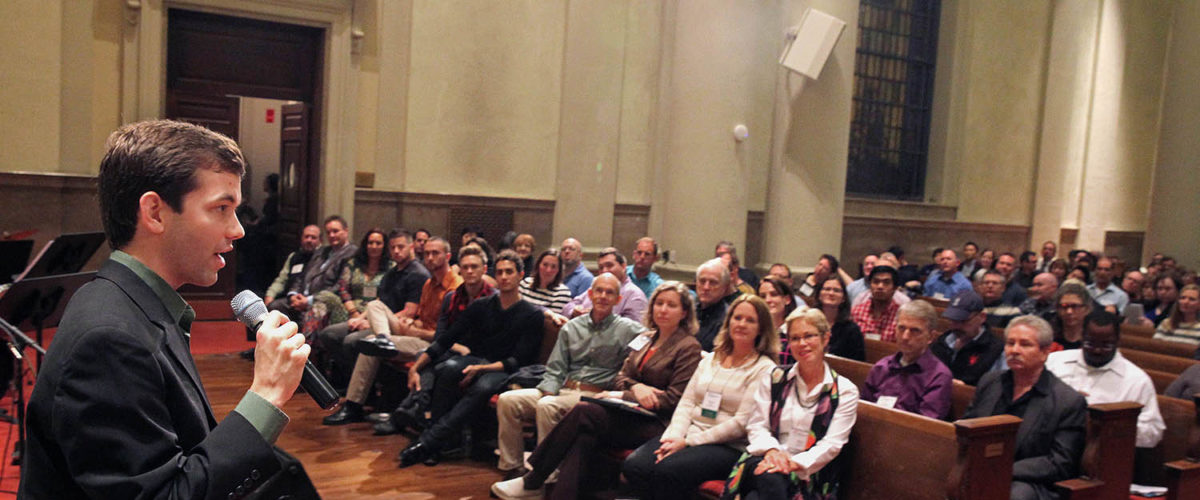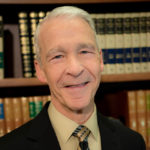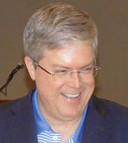Matthew Vines’ calling, it seems, is to a ministry of the improbable, if not the impossible: convincing the world’s Christians to embrace gay people.
Maybe so. But he is undaunted — and confident.
“The global church will be fully LGBTQ affirming,” he says.
That’s 100 percent of churches. Everywhere.
While that may raise eyebrows if not hackles in many circles, Vines has managed to do the same in a five-year campaign to rescue gay Christians from isolation in their churches and families by, in part, changing the way the Bible is interpreted.
He practically became a household name overnight in 2012 with the release of a video in which he explained that it’s OK to be gay and Christian and explaining that homosexuals simply are people who want to enjoy love and family as their straight counter parts do.
The video went viral and inspired major media coverage and a 2014 book by Vines.
Driving it all is a faith-infused optimism that individuals and congregations who get to know gay Christians inevitably affirm their humanity and faith.
It’s not just faith but also experience that inspires Vines and those his work has helped liberate. Seeing churches steadily adopt affirming stances on homosexuality provides that confirmation.
That’s how the world’s churches eventually will come around, he says.
“As people see that, people will change their minds accordingly.”
‘Assuming negative motives’
Vines and his ministry, The Reformation Project, are persistent and consistent in the message that the church has historically misinterpreted biblical passages.
Conservative interpretations, especially, have failed to see the cultural and historical context behind verses traditionally used to condemn gay people.
The story of Sodom and Gomorrah and writings by the apostle Paul, for example, condemn rape, not same-sex relationships and love, Vines says.
Subsequent behaviors and attitudes have harmed LGBTQ people.
The project has targeted audiences with that message: gay Christians who feel isolated in their churches, and conservative evangelical clergy who adhere to traditional biblical interpretations of homosexuality.
Vines says his non-combative and non-condemning conversations with conservatives have made them more open to dialogue with The Reformation Project.
“There is plenty of ill will and hatred out there, but the vast majority of non-affirming Christians are not trying to clobber or harm anyone.”
That approach, Vines says, comes from not seeing Christians who disagree with him as bad people. It’s why he doesn’t use the term “clobber verses” for those passages traditionally used to condemn homosexuality.
“It can sound like you are assuming negative motives on the part of everyone who is not affirming,” he says. That attitude creates space for more constructive dialogue.
Avoiding the ‘evangelical bubble’
It certainly did for Joel Hunter and his 20,000-member church in Orlando, Fla.
Hunter hosted Vines and other clergy Thursday night for “Elevating the Dialogue on LGBTQ Inclusion and Understanding in the Church.”
Hunter describes Northland, a Church Distributed, as theologically conservative, traditional in scriptural interpretation and non-denominational.
And while it has gay and lesbian members who are active in the church, Northland is not affirming in the way meant by Vines and other LGBTQ activists, Hunter says.
“We let them know they belong to a church that loves them and lets them serve and that will be honest about its own interpretation of Scripture — but not in a way that is adversarial or acrimonious.”
It was Vines’ non-adversarial approach to conversation that convinced Hunter to host The Reformation Project event.
Hunter describes Vines’ work as a ministry of communication, one of taking over differences. It’s an approach needed throughout the church, and throughout a fragmented nation, on a range of difficult issues.
“This is a challenge for my folks to think differently and not just stand inside the evangelical bubble,” he says.
As one might expect, a congregation of 20,000 is home to groups who share different opinions on a range of subjects, he says. It’s why the church has been experimenting with its own ministry designed to heal divisions through conversation.
The evening with Vines was to push those efforts along inside the church. Outside, it was to help heal the wounds caused in Orlando by the June 2016 Pulse nightclub shooting in which 49 were killed and 53 wounded.
“I really want my congregation and the community at large to be able to see people talk civilly and appreciatively even though they come from different places,” Hunter says.
“I really want my congregation and the community at large to be able to see people talk civilly and appreciatively even though they come from different places.”
Gay Christians have a responsibility to interpret scriptures the way they want to, Hunter adds. And the same is true for the church.
“It’s not to argue concepts but to know and serve each other even though we come from different theological places.”
‘Manifest rightness of being affirming’
For Vines, that openness to conversation in a non-affirming church is fertile ground from which future acceptance of gay and lesbian Christians can grow.
The endgame is a planet in which every LGBTQ Christian is affirmed and can grow in faith.
“Our vision is of a global church that fully affirms LGBT people,” The Reformation Project explains on its website.
The seeds for that vision lie in leadership training and the eventual launch of local chapters to effect change.
High-profile events like Vines’ are a major part of the strategy, too.
“TRP events are oriented to non-affirming churches where we hold open conversations around GLBT issues,” Vines says.
He says he also speaks to affirming and neutral audiences to equip them with the theological arguments for full inclusion.
Clearly, it’s a big job and isn’t going to be finished overnight.
“I’m not sure how long it will take,” Vines says, mainly because there remain nations where same-sex relationships are punishable by life in prison and even death.
“It could be a number of decades,” he says.
But it will happen because congregations cannot help but vote to become affirming as they see how much it enriches and inspires gay Christians.
“There is no putting the toothpaste back in the tube because of the manifest evidence of the rightness of being affirming.”
‘A slow, steady process’
Some who have worked for LGBTQ inclusion in the church share Vines’ hope, if not his certainty.
“I pray Matthew is correct,” David W. Key Sr. says about Vines’ prediction of eventual global success.
“I do think there is some hardening of perspective from the far-right churches, and I’m not sure he will be successful in that,” says Key, board chairman-elect with the Association of Welcoming and Affirming Baptists.
But Vines is right to keep pushing, says Key, who has been involved with some Reformation Project events.
AWAB itself, long associated with the American Baptist Churches USA, is attempting to find Southern Baptist Convention and independent Baptist churches that may be open to conversations around the affirming movement.
“If they have more than 50 members they very likely have gay and lesbian members, though they may not be out,” Key says. “Matthew has been very helpful with that.”
The Reformation Project has also reached out to LGBTQ Christians who are lonely and fearful in non-affirming congregations. The ministry has provided them with hope through new perspectives on Scripture and let them know they are not alone, Key says.
“He has empowered individuals in congregations to be advocates for gay and lesbian inclusion.”
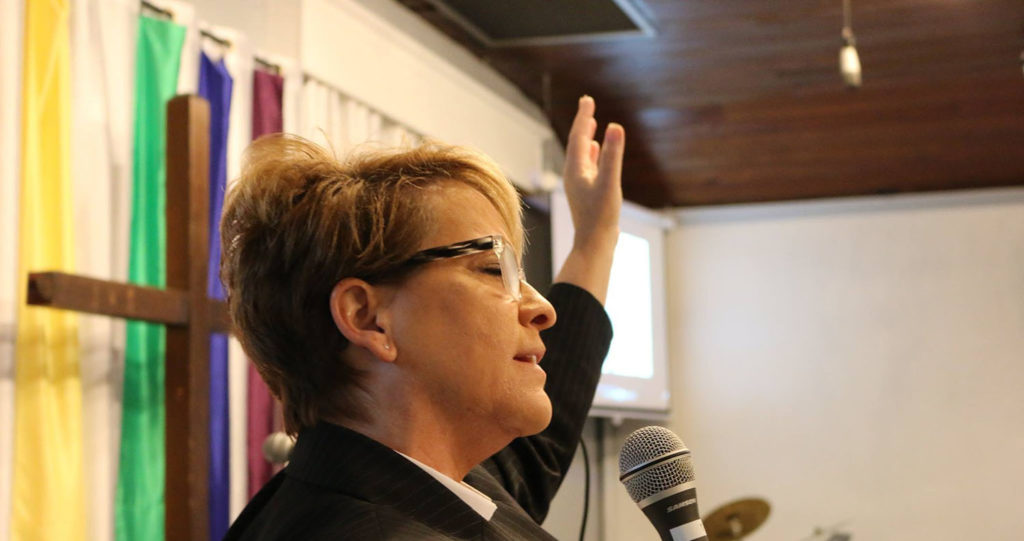
Terri Steed Pierce prays during worship at Joy Metropolitan Community Church in Orlando. The LGBTQ church has been a gathering place for survivors, friends and families of those lost in the Pulse nightclub shooting. The club is located about a mile and a half from the church. (Photo/Jeff Henderson)
And he has empowered some conservative evangelicals to connect in some ways with LGBTQ Christians, says Terri Steed Pierce, senior pastor at Joy Metropolitan Community Church in Orlando.
Pierce was one of the clergy members on the panel with Vines at Northland Church last week. Locally, momentum for the event began building after the Pulse shootings left the gay community, and gay Christians, feeling even more isolated than usual.
It was during that time that Hunter and Pierce began communicating.
“We knew that moment Pulse happened it would change everything,” she says. “We knew we would have to have conversations in these evangelical churches.”
Vines then became the catalyst for a much more public conversation.
“It has to be a slow, steady process of opening people’s minds. It’s not enough, but for right now it is because it has to start somewhere,” Pierce says.
‘You may hit a wall’
That somewhere most often is the local church, Vines says. It begins with a gay Christian in a church sharing the truth about themselves and about what the Bible says, and doesn’t say, about homosexuality.
The affirming movement depends on those individuals to do that initial work.
“I encourage people, when they are coming out, to do all they can to change hearts and minds,” he says.
It’s often a slow and painful process for those individuals, as Vines knows all too well.
After coming out to his Presbyterian congregation in Wichita, Kan., in 2011, Vines tried to convince fellow members one can be gay and a faithful follower of Christ. The church was not willing to reverse its position on homosexuality and Vines eventually left.
“I don’t think change is going to happen unless people who are part of these communities use their voice to make a difference.”
“These are not fun conversations to have and this is not an enjoyable process,” he says.
So much so that some people may not be ready to take on the responsibility.
“It depends on where each individual is spiritually and emotionally.”
Others, like himself, may be able to stay and work in a place for so long.
“You may hit a wall,” he says. “You may feel the church doesn’t want you and it may be necessary to move on maybe to a gay church or to one a bit more moderate.”
He said it’s important others try to have those conversations as much as possible.
“I don’t think change is going to happen unless people who are part of these communities use their voice to make a difference,” Vines says.
Those who do, he adds, are “planting seeds that will hopefully sprout in the future.”
Vines 2012 video, The Gay Debate: The Bible and Homosexuality, went viral and currently has more than 1 million views on YouTube. Out of it sprung his 2014 book, God and the Gay Christian: The Biblical Case in Support of Same-Sex Relationships.
Vines says he’s heard from gay Christians around the country that his video, book and speaking engagements have helped them realize they are not alone and that there are actions they can take.
He also hears straight Christians express astonishment that LGBTQ people want a life of faith and to be in lasting relationships.
It wasn’t like that before, he says.
“When I came out, the vast majority had never had a conversation with an openly gay Christian,” he says. “It was important for me to do what I could to try to engage people constructively and respectfully.”
Going forward, The Reformation Project will attempt to build on the momentum from the video and the books by relying heavily on social media, he says.
“My broader goal is to post information online to be seen by anyone, anywhere and to reach people who are desperate for those kinds of resources.”
And it is an uphill journey, impeded mostly by the persistent belief that Scripture doesn’t allow change, he says. However, that attitude is being overcome because non-affirming arguments about Scripture are less persuasive.
And while progress is slow, it is continuing toward, not away, from affirming the value of LGBTQ Christians.
“The needle is only moving in one direction.”

